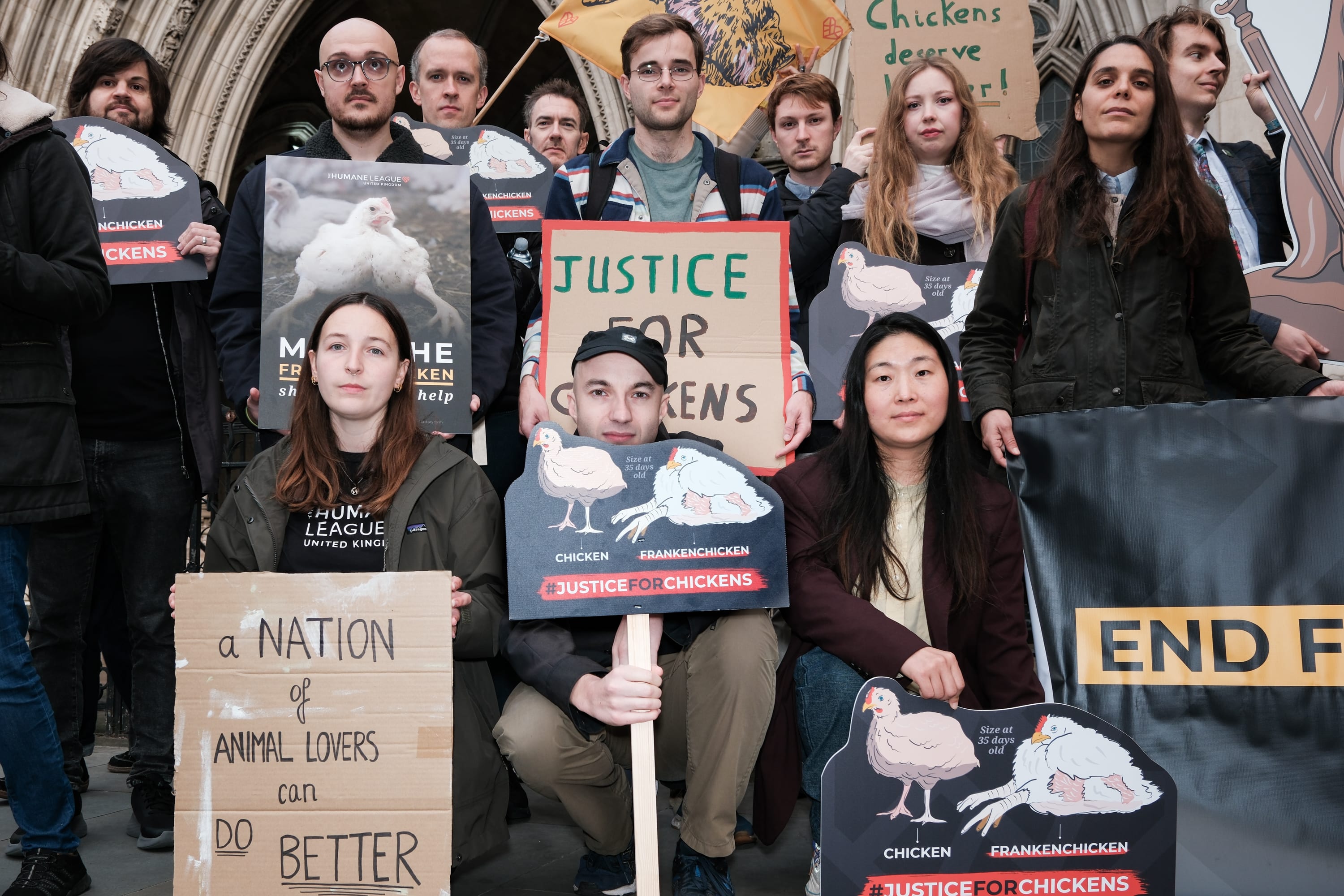
Four years of work has led to his moment. When we started this, we knew it would be big. A battle of David versus Goliath as we took the Government to court. But we also knew that it was the right thing to do, to fight for the millions of Frankenchickens that were suffering because of the way that they had been bred. And on Friday 13th December, we got the result we had been nervously waiting for.
Represented by Advocates for Animals, four years ago we started the process to take the Government to court, arguing that fast-growing chicken breeds, known as Frankenchickens, are illegal under current animal welfare laws.
After a loss, and an appeal, in October 2024 we entered the courts once more. And the judgment is now in on one of the most important legal cases for animals in history.
The judges have ruled in favour on our main argument - that the law says that animals should not be kept in the UK if it means they will suffer because of how they have been bred. This is a huge moment for animals in the UK.
A billion Frankenchickens are raised with suffering coded into their DNA each year. They are bred to grow too big, too fast, to make the most profit possible. In light of this ruling, we believe that farmers are breaking the law if they continue to keep these chickens.
However, Defra, the Government department responsible for farming, has been let off the hook on a technicality. Because Defra has been silent on fast-growing breeds of chicken, the judges found they had no concrete policy that they could rule against. This means that our case has been dismissed and the judges have not ordered Defra to act.
It is clear: by not addressing this major animal welfare crisis, Defra has failed billions of animals - and the farming community. This must change.
While this ruling has failed to force the Government to act, it has confirmed our view that farmers are acting criminally by using fast-growing breeds. We will now explore bringing private prosecutions against mega-farms that use Frankenchickens.
The cruel use of Frankenchickens is possibly the biggest animal welfare crisis of our time. With your continued support, we will use this new ruling to do everything we can to bring it to an end.

Thanks for getting back to me. I think there is a spectrum of interpretations of Paragraph 29, some more favourable and some less favourable to animals.
The least favourable interpretation is that the law does not provide farms with a "conditional permission" - that is, the law does not establish a prohibition on the keeping of farmed animals subject to a "proviso". This was the position taken by a High Court judge in May 2023, and would have ruled out private prosecutions of farms.
The "victory" in the Court of Appeal came in the Court's ruling that:
As Essex Court Chambers put it:
It is true that the most favourable interpretation for animals - that the law establishes a prohibition on the keeping of farmed animals in the conditions that they are likely to be kept - was not upheld by the Court.
But I maintain that while this means that the bar is high, I don't think it's as high as it seems at first glance. You rightly point out that the Court said that "Paragraph 29 is a prohibition on the keeping of farmed animals whose genotype and phenotype mean that, regardless of the conditions in which they are kept, they cannot be kept without detriment to their health or welfare".
But they go on to say:
Similarly, Welfare Footprint write: "Although the adoption of better management practices – including lower stocking density, longer resting times and the provision of enrichment – is beneficial and desirable for improving broiler welfare, their impact is limited if the negative welfare effects inherently associated with the genetics for fast growth are not addressed."
One question I do have is why THL UK took DEFRA to Court, instead of bringing a private prosecution of a factory farm. One reason might be that this was an attempt to affect the whole industry, whereas any positive Judgment in the case of a particular farm might still only apply to that farm, even if it establishes a precedent that can be used to bring successful prosecutions against other farms. In other words, taking DEFRA to Court may have been considered a quicker and more efficient route.
This might be of interest to: @Ozzie Gooen @MHR @MichaelStJules @bruce @Rasool.